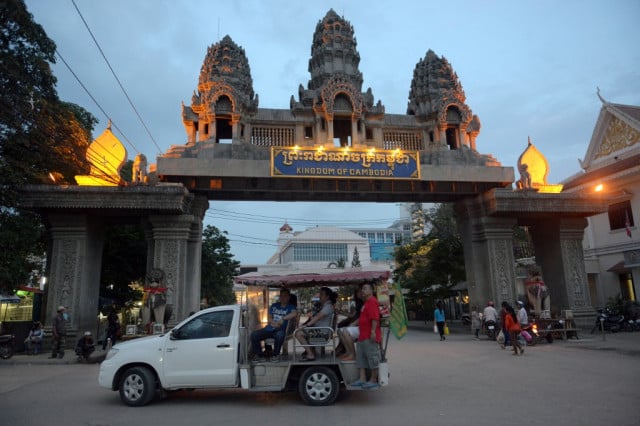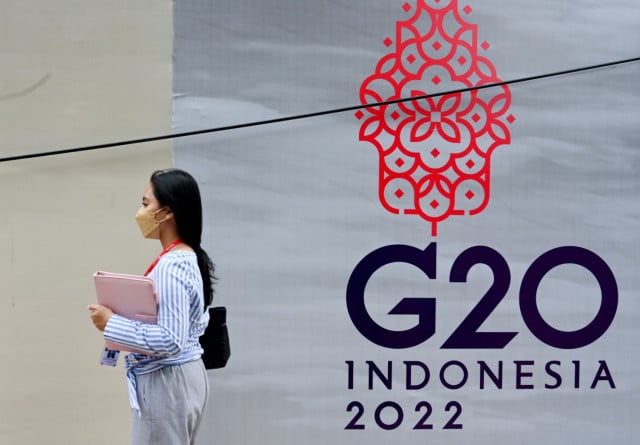Desperation Forcing Cambodians to Cross Thai Border Illegally, Despite COVID-19

- Phoung Vantha
- February 3, 2021 10:05 AM
As COVID-19 continues to run rampant across Thailand, jobless Cambodians who have previously worked over the border are now once again looking for illegal passage out into Thailand.
PHNOM PENH--Cambodian workers continue to illegally cross the Thai border in search of jobs, despite the ongoing threat of the COVID-19 pandemic.
Thai labor authorities have appealed to all migrant workers arriving between Jan. 15 and Feb. 13, 2021 to register their information online, with roughly 70,000 Cambodians having already done so.
Loeng Sophon, a project officer who works with local NGO Center for Alliance of Labor and Human Rights (CENTRAL) in Thailand said that between November 2020 to the end of January 2021, Thai authorities arrested and sent back 1,385 Cambodian workers, including 186 women.
“Those Cambodians who risked the dangers of migrating at this time did so due to debt, unstable employment and often they have to provide for their families,” Sophon said.
CENTRAL are working on establishing how many more Cambodians have recently crossed the border illegally, but Sophon noted that many are familiar with Thailand from previous jobs and so may have escaped the Thai authorities.
“I interviewed them,” he said. “They saw brokers posting job adverts on Facebook and other social media platforms, so they contacted the brokers for work in Thailand as they did not have any other work after the rice harvest,” he said.
Estimates from CENTRAL points to a total of some 2 million migrant workers—both legal and undocumented—of which 30 to 35 percent work in the construction sector, often tasked with infrastructure development.
However, Sophon noted that 15,396 Cambodians were arrested in Thailand and deported between April and October last year as the Thai authorities set about deporting undocumented workers due to COVID-19 concerns.
Keo Vanthan, spokesperson for Cambodia’s General Department of Immigration said that 5,916 Cambodian men and a further 4,201 Cambodian women had returned from Thailand of their own volition between Dec. 20, 2020, and Feb 2. 2021, but added that during the same period, 390 men and 148 women were returned by Thai authorities.
The main crossing points, he added, are Poipet, O’Smach, Cham Yeam, Choam and Prom checkpoints along the border.
Cambodia is still counting the cost of the pandemic, with key industries still reeling from the disruption to global supply chains and export markets. Back in 2019, official reports stated that 1,069 factories were operating in Cambodia and 2020 saw 129 factories close, although the Ministry of Labor said that an additional 112 new factories were opened.
The ministry stated that 71,000 people had lost jobs due to factory closures, although new factories offset this somewhat by providing 23,000 new jobs for Cambodians. Official figures neglected to detail the economic impact of factory closures on the businesses that are often established around the factory grounds—food stalls, hair salons and transport businesses all depend on factory workers for an income.
Behind the numbers, however, the economic impact has been felt by those factories that remained open as factory owners sought to cut costs, reduce shifts and lobbied the government to prevent a minimum wage increase.
The year saw at least 8,000 workers from six different factories go on strike, with much of the direct action stemming from unpaid benefits and seniority payment disputes, but ultimately were linked to the economic crisis that COVID-19 has plunged Cambodia into.
With the tourism, garments and construction sectors all suffering due to reduced travel, reduced exports and a weaker flow of foreign direct investment, what jobs were available because even more hotly contested after an estimated 130,000 Cambodians returned from working abroad over the course of 2020.















